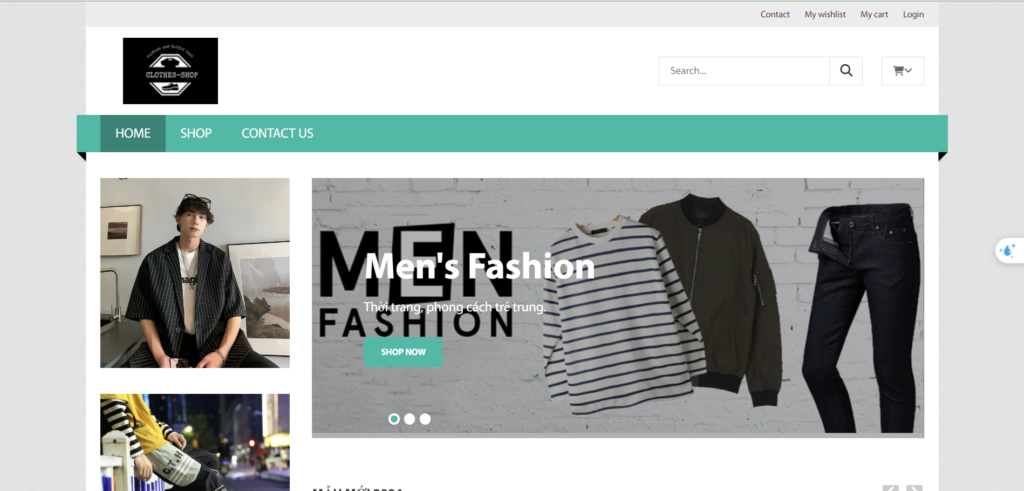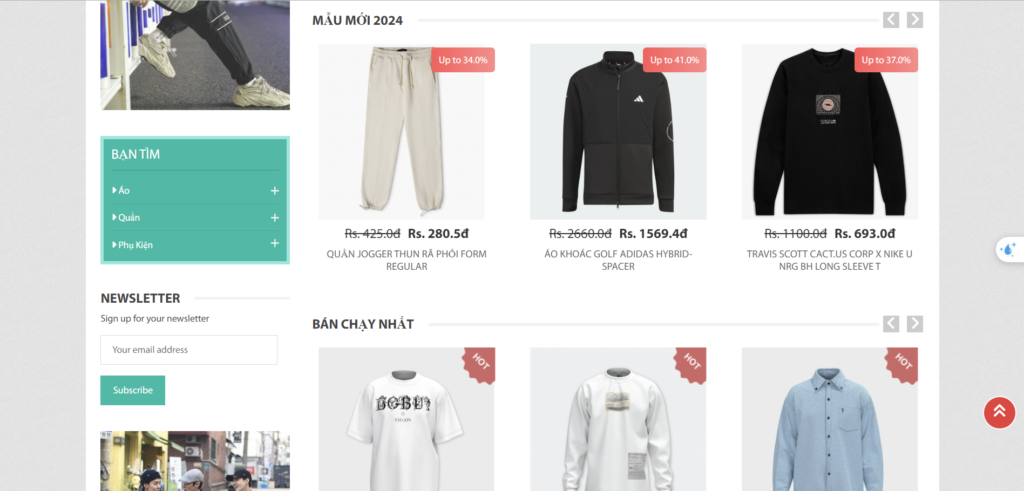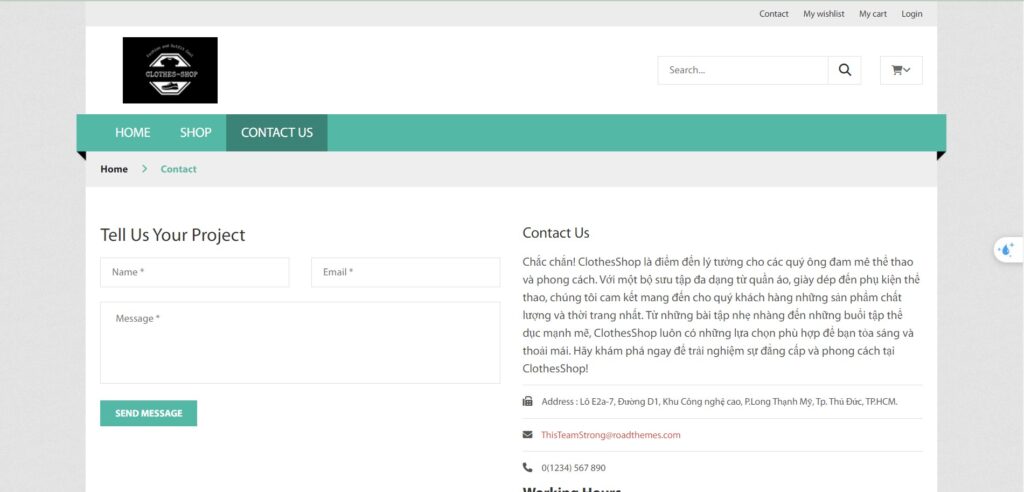Online Clothing Shop – Java Web Application
Introduction
Welcome to the comprehensive guide on developing an online clothing shop using a Java web application. This project was an assignment under our teacher’s requirements in class, aimed at creating a functional e-commerce website for buying clothes. This web application includes features for guests, users, and administrators, and it’s designed to work seamlessly on desktop devices. Let’s dive into the details of this project.
Step 1: Making the Project
Overview
The primary objective of this project is to build an e-commerce platform for clothing using Java. The application follows the MVC2 (Model-View-Controller) design pattern, ensuring a structured and maintainable codebase. It supports essential e-commerce functionalities like user registration, login, product browsing, cart management, and order processing.
Frontend Technologies
- JSP (JavaServer Pages) – Used for generating dynamic web content.
- JSTL (JSP Standard Tag Library) – Simplifies the creation of JSP pages.
- Ajax (Asynchronous JavaScript And XML) – Enhances user experience by allowing asynchronous data fetching.
Backend Technologies
- Servlets – Handle request-response programming and extend server capabilities.
- JDBC (Java Database Connectivity) – Connects and executes queries with the database.
Database
- Microsoft SQL Server – A relational database server used for storing and managing data.
Step 2: Essential Features
Guest Features
- Login by account – Users can log in with their registered accounts.
- Register an account – New users can create an account using a username and password.
- Search and view products – Browse through the available clothing items.
- Filter products – Apply filters to narrow down product searches.
- Add, update, remove cart items – Manage shopping cart items without reloading the page using Axios.
- Login by Google account – Quick login via Google OAuth2.
User Features
- Search and view products – Similar to guest features.
- Subscribe for newsletters – Users can subscribe to receive daily information.
- Logout – Securely log out of the account.
- Update account information – Edit personal details.
- Password retrieval – Recover forgotten passwords.
- View and manage orders – Track and manage past orders.
- Checkout – Complete the purchase process.
Admin Features
- Managing products – Add, update, or delete products.
- Managing accounts – Oversee user and admin accounts.
- Managing categories – Organize products into categories.
- View order details – Review order specifics.
- Send emails – Communicate with users via email.
- Update admin account information – Modify admin details.
- Statistic revenue – Generate revenue reports.
- Order confirmation – Confirm and process orders.
Step 3: Required Software and Tools
Development Tools
- NetBeans 8.2 – An integrated development environment for Java.
- Java JDK 8 – Java Development Kit for developing Java applications.
- Apache Tomcat 8 – A web server and servlet container.
- Visual Studio Code – A source-code editor.
- Microsoft SQL Server Management Studio 19 – For managing the database.
Libraries
- JSTL – For simplifying JSP development.
- sqljdbc4 – For connecting to Microsoft SQL Server.
- javax.mail – For sending emails.
- commons-logging-1.2 – A logging framework.
- gson-2.8.2 – For JSON processing.
- fluent-hc-4.5.5 – For HTTP client functionality.
- httpclient-4.5.5 and httpcore-4.9.9 – For HTTP operations.
Step 4: Running the Project
To run this project, follow these steps:
- Set up the development environment – Install NetBeans, JDK, and Apache Tomcat.
- Configure the database – Set up Microsoft SQL Server and create the necessary database schema.
- Import the project – Open the project in NetBeans and configure the database connection.
- Deploy the application – Use Apache Tomcat to deploy and run the application.
- Test the functionalities – Verify all features, including user registration, login, product browsing, and checkout.
Step 5: Project Screenshots
Include screenshots showcasing various parts of the application:
- Homepage – Displaying featured products.
- Product Listing – With filters and search options.
- Product Details – Showing detailed information.
- Shopping Cart – With add, update, and remove options.
- Checkout Process – Including email confirmation.
- Admin Panel – Managing products, accounts, and orders.



Step 6: Download Project
Download Project Free Click Here
Complete Python Course : Click here
Free Notes :- Click here
New Project :-https://www.youtube.com/@Decodeit2
How to setup this Project Complete video – Click here
Tags and SEO
Tags
- Java
- E-commerce
- Online Clothing Shop
- JSP
- Servlets
- JDBC
- MVC2
- Ajax
- NetBeans
- Tomcat
SEO Title
“Developing an Online Clothing Shop with Java Web Application: A Comprehensive Guide”
Conclusion
This Java web application for an online clothing shop covers a wide range of functionalities for guests, users, and administrators. By following the MVC2 design pattern and using modern technologies, this project provides a robust and scalable solution for e-commerce platforms. Whether you’re a student or a developer looking to enhance your skills, this guide offers a solid foundation for building similar applications.
| online clothing shop |
| best online clothing shop |
| online clothing shop uk |
| uk online clothing shop |
| how to start an online clothing shop |
| online clothing shop free shipping worldwide |
| online clothing shop usa |
| australia online clothing shop |
| online clothing shop philippines |
